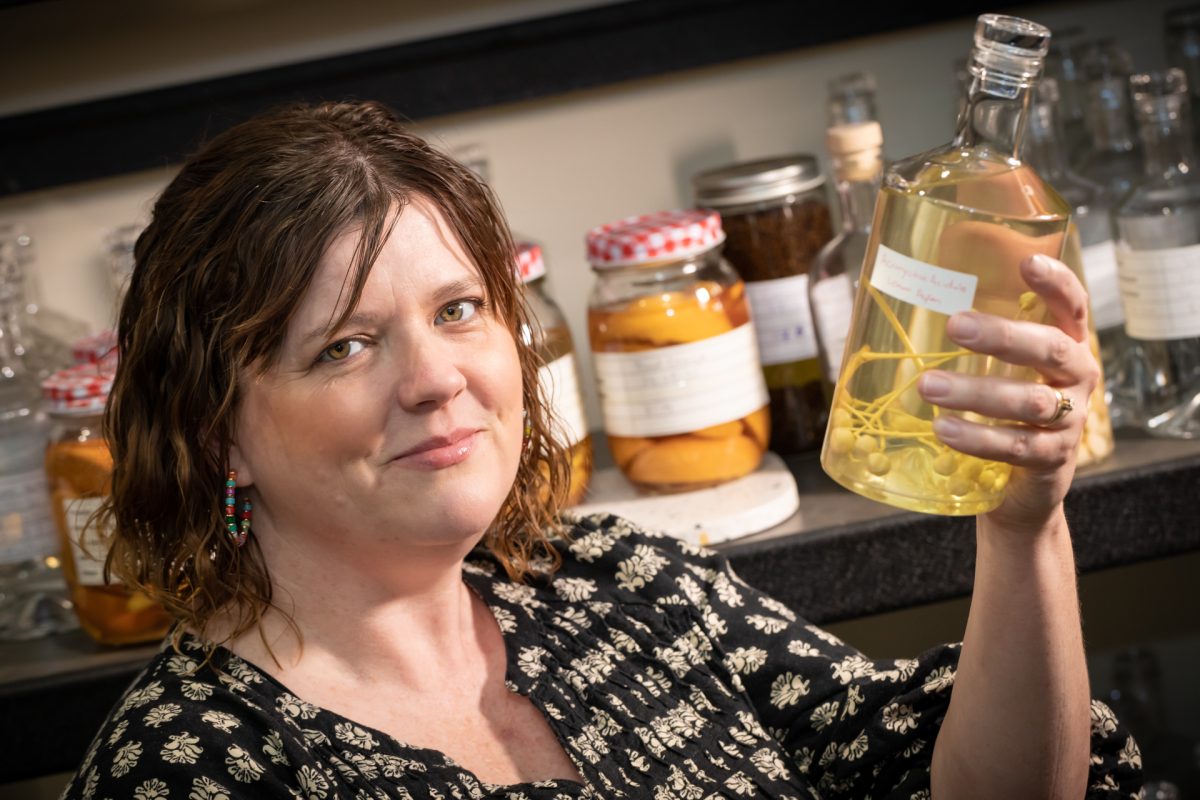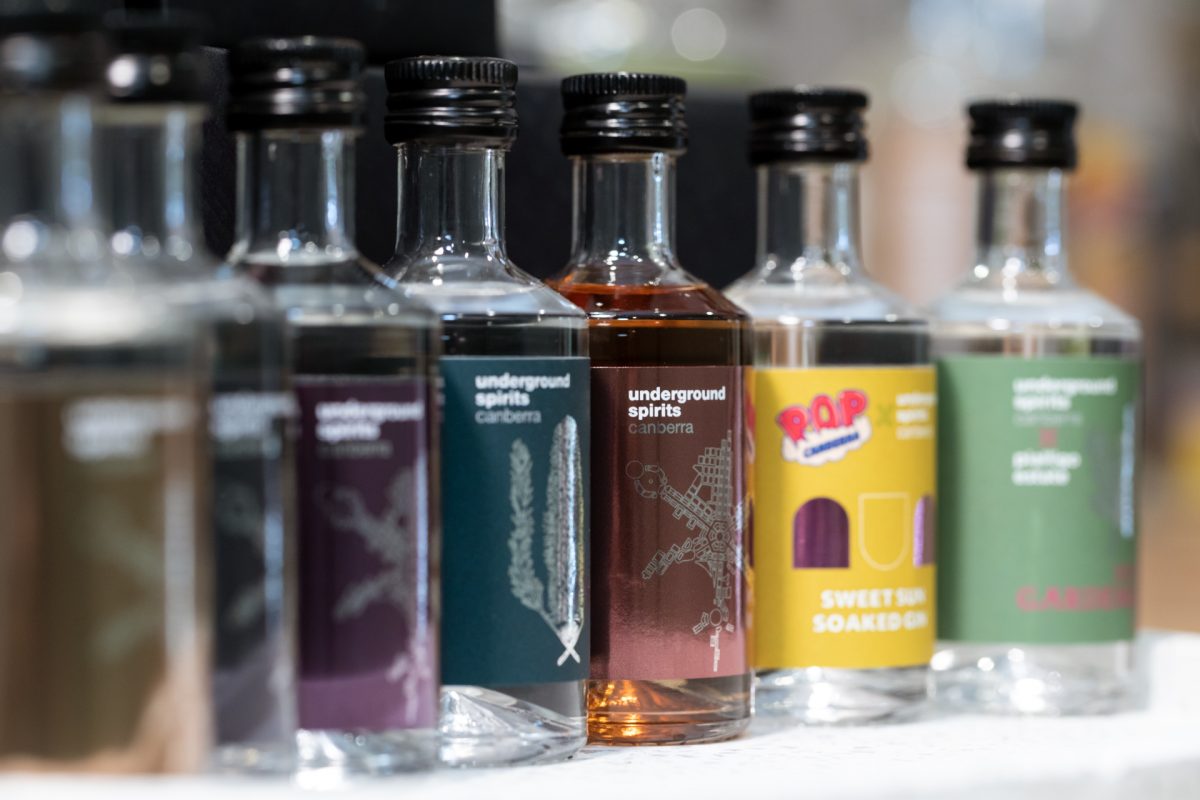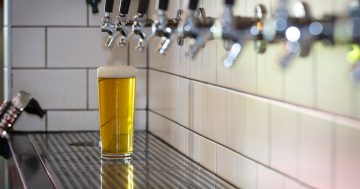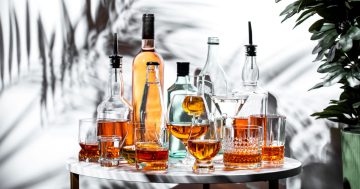
Underground Spirits CEO Claudia Roughley has joined the call to freeze spirits tax increases. Photo: Michelle Kroll.
Craft distillers are turning up the heat in their fight for increased support from the Federal Government following another spirit excise increase on 5 February.
The CEO of Canberra’s award-winning Underground Spirits, Claudia Roughley, said it was time for the Commonwealth to secure the future of the craft distilling industry by placing a freeze on spirits tax increases after the excise was increased to a new high of $101.85 per litre of alcohol, off the back of the December quarter CPI increase.
Claudia joined the Australian Distillers Association’s (ADA) NSW and ACT committee to raise awareness of the struggles facing distillers and lobby for government funding for infrastructure, marketing and tourism opportunities.
“At the moment, we have shackles on our industry,” she said
“The government is not fully supporting us the same way they are supporting other craft industries.
“We need help to build the distilling industry. The government has got behind the wine industry in so many ways since the 1980s, and while we’re different, we’re worth getting behind.”
She said Australian distillers and the ADA were lobbying for a parliamentary enquiry into the industry, and they were hoping for a response from the government within months.
Australia now has the world’s third highest spirits excise, behind Iceland and Norway, which Claudia said placed distillers at a competitive disadvantage compared to producers of other alcoholic beverages.
“The excise on full strength tap beer is levied at $42.37 per litre – with the first 1.15 per cent being excise free, while wine is taxed differently again, at 29 per cent of the final wholesale price, with additional concessions for trade samples – unlike for spirits,” she explained.
This means a typical bottle of wine is taxed at 24 cents per standard drink, tap beer is taxed at 41 cents per standard drink and spirits are taxed at $1.29 per standard drink.
Claudia said the tax was hurting distillers, particularly small operators, who could not compete with huge multi-national companies that could afford to absorb the added cost.
“We’re a small business employing people and we have no choice but to put our products on the shelf at a higher price. Our premium, Australian-made spirits are competing with cheaper, mass-produced products,” she said.
“We want everyone to understand that we really need to look at our industry and the tax imposed on distilling and craft spirits.
“People wonder why Australian products are so expensive, but on an average, for a 700-millilitre bottle of gin, consumers are paying $28.52 tax.”
ADA chief executive Paul McLeay said automatic indexation had opened up a chasm in pricing between spirits and other alcohol categories, which were taxed at a lower rate from the outset.
“The compounding effect of these six-monthly increases is now being felt with increasing severity by spirits manufacturers and consumers,” he said.
“Without intervention, the current alcohol tax system is increasingly discriminating against Australians who enjoy whisky, gin, vodka and other spirits.
“Our industry contributes $15.5 billion in added value to the Australian economy, supporting 5700 spirits manufacturing jobs and 45,400 jobs in spirits wholesale, retail and hospitality.
“The Federal Government must act now to safeguard our industry’s future by temporarily freezing this unfair and damaging tax.”

Australian spirits now attract an excise of $101.85 per litre of pure alcohol, about $28 per bottle. Photo: Michelle Kroll.
The Australian Government collects $5 billion in annual excise from the spirits industry, compared to $1.2 billion for wine and $2.6 billion for beer.
The “real pickle”, Claudia said, was that consumers wanted to support local producers and consume spirits with a story, but often, they couldn’t afford to.
“The industry has grown over the past decade, with more than 600 spirits manufacturers across the country, because people want home-grown spirits. They want to know where the products come from, they want to hear the story they tell and to understand the makers,” she said.
“Craft spirits have the ability to tell stories from all across the country, and we’re blessed with amazing resources that produce beautiful products that really stand up on the world stage.
“We make good spirits and we’ve proven the world wants to drink them, so it’s time for the government to take us seriously.”
Spirits and Cocktails Australia chief executive Greg Holland said this week’s hike was the 74th increase levelled at Australian spirits manufacturers.
“Inflation is still well beyond the target rate of 2.5 per cent, and we can safely assume that spirits excise remains a major culprit because the ABS (Australian Bureau of Statistics) previously disclosed that spirits were the biggest contributor to rising alcohol prices in the September quarter,” he said.
He said the figures should compel the Federal Government to reconsider the automatic indexation of spirits excise, an archaic policy introduced by the Hawke Government in 1984.
“If this tax was appropriate back then, it certainly isn’t now. Our tastes have changed in every way, with more and more Australians appreciating spirits as their preferred tipple in mixed drinks and cocktails.
“We call on the Federal Government to freeze this unbearable tax at the current rate for two years so that we can all sit down at the table and discuss a workable solution.”
Lark Distillery was granted Australia’s first craft distillery license in 1992 and Claudia said the sector had continued to expand over the past 30 years, with two-thirds of distilleries located in regional areas.
“It does feel like we’re in our infancy compared to the wine industry, but the potential for us is unlimited,” she said.
“We can do a lot for this country by creating jobs, bringing tourist dollars into our regional areas and creating exceptional products that Australia can be proud of.”
Original Article published by Katrina Condie on Riotact.





